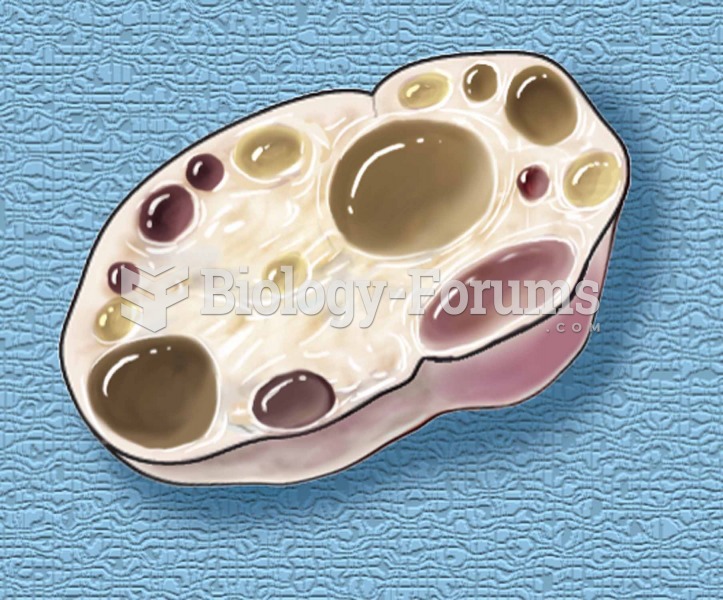This topic contains a solution. Click here to go to the answer
|
|
|
Did you know?
Since 1988, the CDC has reported a 99% reduction in bacterial meningitis caused by Haemophilus influenzae, due to the introduction of the vaccine against it.
Did you know?
The horizontal fraction bar was introduced by the Arabs.
Did you know?
If all the neurons in the human body were lined up, they would stretch more than 600 miles.
Did you know?
Patients who cannot swallow may receive nutrition via a parenteral route—usually, a catheter is inserted through the chest into a large vein going into the heart.
Did you know?
Though “Krazy Glue” or “Super Glue” has the ability to seal small wounds, it is not recommended for this purpose since it contains many substances that should not enter the body through the skin, and may be harmful.
 Female individuals of the banded Uromastyx, Uromastyx flavofasciata, are different colours. Most nat
Female individuals of the banded Uromastyx, Uromastyx flavofasciata, are different colours. Most nat
 Competition can be (a) direct, or (b) indirect interaction among individuals of the same or differen
Competition can be (a) direct, or (b) indirect interaction among individuals of the same or differen





